Jun 3, 2025 11:25 AM
In Memoriam: Al Foster, 1943–2025
Al Foster, a drummer regarded for his fluency across the bebop, post-bop and funk/fusion lineages of jazz, died May 28…
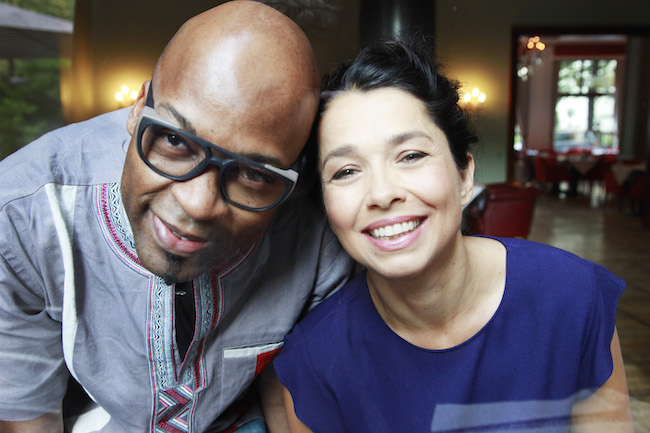
Céline Rudolph, shown here with collaborator Lionel Loueke, says her upbringing readied her to embrace a global vision of music.
(Photo: Joachim Gern)Berlin-based singer-songwriter Céline Rudolph grew up immersed in multiculturalism, surrounded by different languages, the grooves of several continents and the tones of various instruments. Her mother taught her French and introduced her to the melodic richness of chanson. Her father taught her German and presented Rudolph with the compelling grooves of African drumming and the soft sweetness of Brazilian vocal jazz. And later, at Berlin University of the Arts, she studied jazz under the tutelage of several prominent American instrumentalists: vibraphonist David Friedman, drummer Jerry Granelli and pianist Kirk Nurock.
“It’s a gift being raised with two languages, because then your ear is very open to all different sounds,” Rudolph said in a recent phone call to discuss her latest release, Pearls, newly launched on her own label, Obsessions. “The ear is my tool—everything comes in through the ear.”
The distinctive aural impressions of Rudolph’s upbringing find expression on the album, more than a dozen tracks of original songs, jams and radio edits. Recorded in Brooklyn with an impressive assemblage of protean musicians—guitarist/singer Lionel Loueke, pianist Leo Genovese, bass clarinetist John Ellis, bassist Burniss Travis and producer/drummer Jamire Williams—these individualistic compositions don’t land easily in any one bucket.
Rudolph, however, is clear about what defines her sound. “My main approach to music is through jazz—always from the point of view of a jazz musician,” she said. “So, in my music, the cultures blend and meld together, and the music doesn’t fall apart. [Instead], the different genres are very inspiring to me and lead me to new horizons.”
One of these new horizons was the 2017 formation of the Obsessions label, undertaken in large part to self-release a duo album of the same name, recorded with likeminded musician Loueke. Born in Benin, trained at Berklee College of Music and the Thelonious Monk Institute of Jazz, and now residing in Luxembourg, Loueke’s musical interests reflect Rudolph’s—French chanson, African rhythms, American jazz. So, the fit seemed natural. “Céline is indeed my musical soulmate,” Loueke wrote in an email while on tour in Europe. “We are connected when we play, and our vision of music is very similar.”
That vision is, in a word, global—and according to Rudolph, this global vision is not one that many recording companies share. “I started the label to be independent and to make my music heard internationally,” she said. “A lot of labels—especially European labels—don’t think that way. So, you can record a lot of albums and stay in your country, but it’s hard to get heard outside of that. This is a step toward promoting [my music] outside of Germany—in other European countries and in the U.S.—I have this freedom now.”
It’s hard to doubt Rudolph’s expertise in the matter, given her years of experience working with some of Europe’s best labels.
She released Salvador—in both French and German versions—in 2011 on Verve/Universal Music; Metamorflores in 2009 and Brazaventure in 2007 on Enja Records; and Book Of Travels in 1996 and Paintings in 1994 on Nabel Records. And on the Swiss imprint ZeroZero, she released Berlin, 1999 and Segredo, both in 1999.
Loueke concurs with Rudolph’s assessment of the challenges that polyglot, polymath musicians face in their efforts to reach an international audience. “The major labels are in crisis these days, as we all know,” he asserted. “I truly believe that it’s time for us musicians to own our music, and I think that Céline is doing the right things for her career. She’s a positive voice in the music community, and she is making a great impact as a singer and independent label owner.”
With label ownership comes new responsibilities, however, especially regarding international promotion. Last year, Rudolph and Loueke toured seven West African countries with Obsession on behalf of the Goethe-Institut—Rudolph would like to devise a similar jaunt to promote Pearls throughout the United States.
“I’ve started touring the album in Europe already, and I’m looking for partners in the States because I know it’s going to be really difficult to organize a [U.S. tour] from here,” she said. “My wish would be to find a partner who could [sponsor] the band, maybe with some of the original lineup.”
As she contemplates her next steps as an indie artist, what drives Rudolph—as ever—is her passion for borderless sounds. “I’d love to perform [the album] worldwide,” she concluded. “This music is my way of loving life.” DB
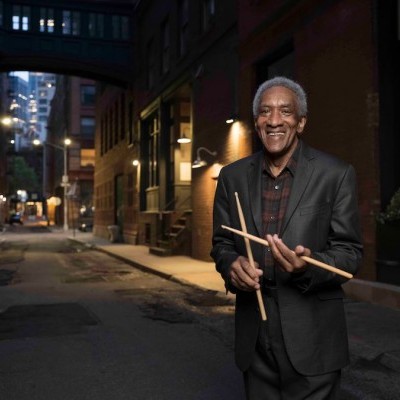
Foster was truly a drummer to the stars, including Miles Davis, Sonny Rollins and Joe Henderson.
Jun 3, 2025 11:25 AM
Al Foster, a drummer regarded for his fluency across the bebop, post-bop and funk/fusion lineages of jazz, died May 28…
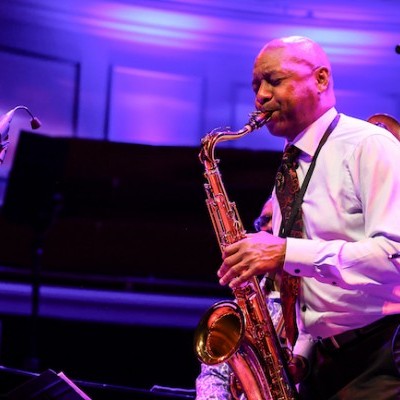
“Branford’s playing has steadily improved,” says younger brother Wynton Marsalis. “He’s just gotten more and more serious.”
May 20, 2025 11:58 AM
Branford Marsalis was on the road again. Coffee cup in hand, the saxophonist — sporting a gray hoodie and a look of…
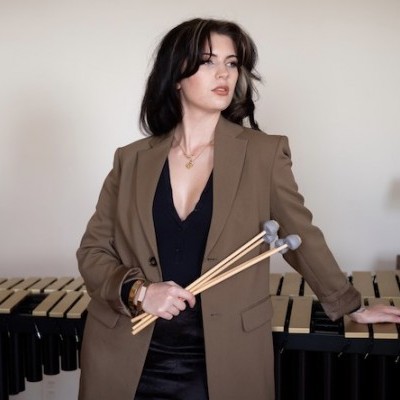
“What did I want more of when I was this age?” Sasha Berliner asks when she’s in her teaching mode.
May 13, 2025 12:39 PM
Part of the jazz vibraphone conversation since her late teens, Sasha Berliner has long come across as a fully formed…

Roscoe Mitchell will receive a Lifetime Achievement award at this year’s Vision Festival.
May 27, 2025 6:21 PM
Arts for Art has announced the full lineup for the 2025 Vision Festival, which will run June 2–7 at Roulette…
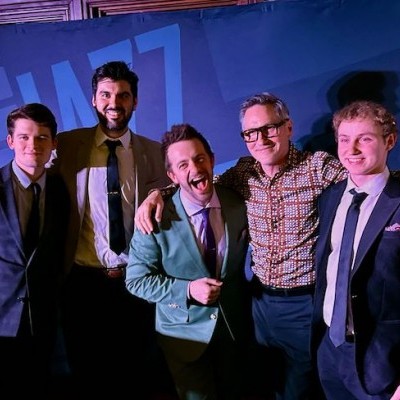
Benny Benack III and his quartet took the Midwest Jazz Collective’s route for a test run this spring.
Jun 3, 2025 10:31 AM
The time and labor required to tour is, for many musicians, daunting at best and prohibitive at worst. It’s hardly…